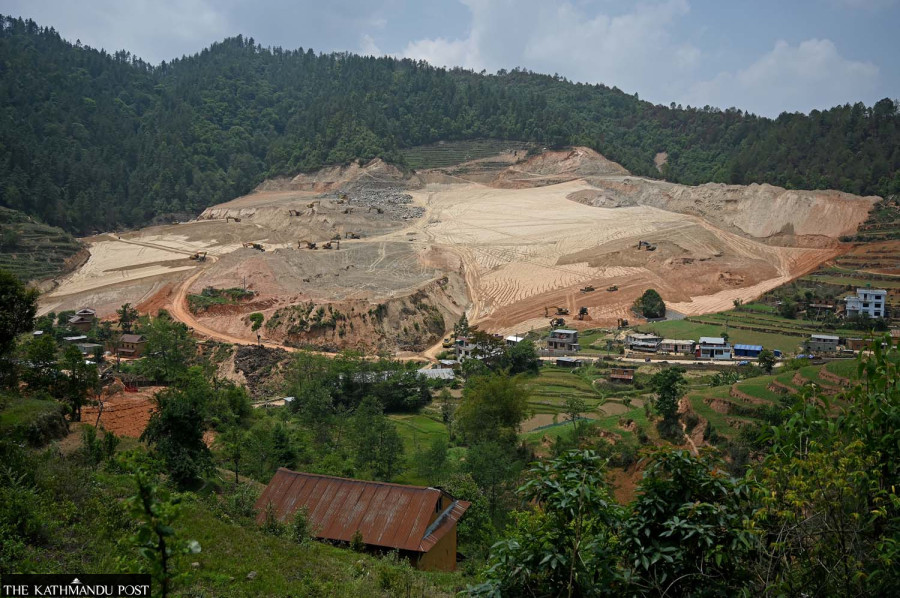National
Tough land deal rules axed under ‘PMO’s pressure’
Expert says government should have upheld rules aimed at curbing black money and addressing FATF concerns.
Purushottam Poudel
The government has backtracked on its earlier decision requiring people to show bank statements and fill out Know Your Customer (KYC) forms when buying or selling land or houses.
Just a week after introducing the stricter rules, the Department of Land Management and Archives amended its directive, removing the requirement for bank statements and KYC documents in such transactions.
Sources privy to the development said the new rule was revoked on the orders of the Prime Minister’s Office (PMO).
The stricter measures were introduced to curb the use of black money in land transactions and help Nepal get off the Financial Action Task Force (FATF) grey list.
On May 28, the department issued a directive which was purportedly aimed at preventing money laundering and the financing of terrorist activities, which was also dispatched to land revenue offices across the country for implementation.
However, following the PMO’s instructions, the directive was amended on June 6 before it could come into effect. The previous directive mandated that buyers and sellers of land submit their bank statements. This provision has now been made more flexible.
“Some provisions of the directives have been changed following the PMO’s intervention,” said an officer at the Department of Land Management and Archives.
However, Information Officer at the department, Surya Prasad Koirala, said the directive should have been issued only after revising the land revenue regulations, but the directive was issued prematurely and hence repealed.
“As the directive is all about land revenue regulations, I do not see any possibility of the PMO intervening,” Koirala said.
According to the revised provisions, bank statements are no longer required from buyers or sellers during land transactions. Similarly, the requirement for agent companies’ buyers, sellers, and directors to compulsorily fill out KYC forms has also been removed.
The amended directive on June 6 omitted article 2, and sub-articles D, E, and F from the original directive. Article 2 of the directive is related to money laundering. Similarly, articles 6, 7 and 8 have also been scrapped while article 10 has been amended. All the articles, either scrapped or amended, are related to tightening controls on monetary fraud in land transactions.
The FATF cited several reasons for placing Nepal on its grey list. One was that money without declared sources was flowing into cooperatives and real estate.
Therefore, the department’s original directive making it mandatory to fill out KYC forms during land and property transactions was commendable, said Rameshore Khanal, a former finance secretary.
Khanal, who also headed a high-level commission formed by the current government to recommend reforms to revitalise the ailing economy, said the government should have stuck to the original directive.
“The general public applauded the earlier directive. The decision to amend or scrap its major points is against national interest,” Khanal said.
But Nepal Land and Housing Developers Federation’s President Bishnu Prasad Ghimire argues that had the directive been implemented as it was, requiring all transaction money to be deposited into banks before buying land, both buyers and sellers would have faced problems.
“The directive was problematic for various reasons, one being that under it people could not buy property using collateral in the bank,” Ghimire said. “Apart from this, there would have been other difficulties ensuing from the directive’s implementation.”
Previously, during land sale and purchase transactions, buyers had to submit documented proof that the transaction amount had been deposited into the seller’s account from their bank account. This also included bank statements for transactions such as advance payments, which are no longer mandatory.
Moreover, the provision requiring payment of registration fees and taxes via account transfers for property transactions exceeding Rs1 million has also been repealed.
Earlier, if a buyer or seller transacted Rs30 million or more in a single day or in installments, the transaction details had to be submitted to the Financial Information Unit (FIU) of the Nepal Rastra Bank. This threshold has been lowered to Rs10 million.
The requirement that transactions between Rs1 million and Rs5 million be made through banking or electronic payment systems has also been relaxed. But transactions above Rs5 million still require payment via electronic means or a ‘Good for Payment’ cheque made out to the seller.
A senior government officer familiar with the PMO’s workings accused the prime minister and his political advisors of working for vested interests.
“Some real estate brokers might have convinced officials at the prime minister’s office to revoke the directive,” the officer said.
However, Ramsharan Bajagain, press advisor to Prime Minister Oli, denied any such interference.
“Nowadays, there is a tendency to drag the prime minister into every issue. This episode is just a continuation of that trend,” Bajagain stated.




 10.12°C Kathmandu
10.12°C Kathmandu















